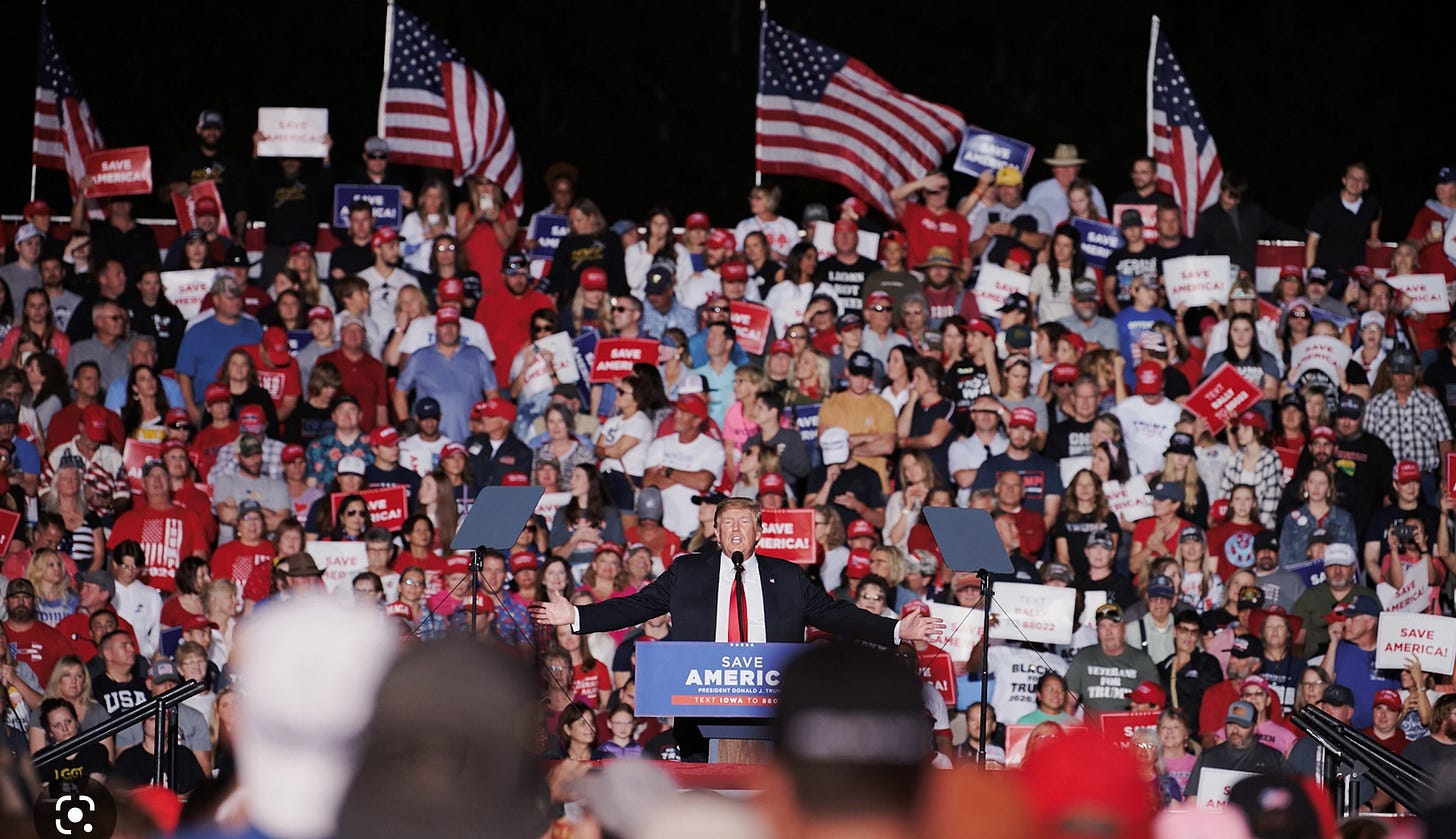Update: This is exactly the kind of irresponsible commentary that I was attempting to reference in today’s post.
Former President Donald Trump has been indicted. His arraignment is scheduled for next Tuesday, when the indictment will be unsealed and Trump and the rest of us will learn the details of the charges.
Trump has already attempted to work his supporters into a frenzy at recent rallies by invoking the possibility of widespread violence in the event of his trial and conviction. On his social media platform he warned of “potential death & destruction in such a false charge” if he’s charged with a crime. We’ve come to expect such dangerous and irresponsible rhetoric from the former president, his political allies, and supporters.
All of us need to remain vigilant, but I am confident that the rule of law will prevail in this case as well as the other possible indictments that may be announced in the near future. Though Trump is the first former president to be indicted, historian Heather Cox Richardson reminds us that he is far from the first former elected leader to face criminal charges.
Mayors have been indicted and convicted. So have governors: in fact, four of the past ten Illinois governors have gone to prison. Vice presidents, too, have been charged with crimes: Aaron Burr was indicted on two counts of murder in 1804 while still in office and was tried for treason afterward. And in 1973, Richard Nixon’s vice president Spiro Agnew resigned after pleading no contest to tax evasion to avoid prison time.
I’ve expressed concern in the past that too many reporters and commentators have embraced the violence of the Civil War and Reconstruction to characterize our current political climate and as a basis for making predictions as to where we are headed.
More than ever now we need to resist this urge. It may make exciting copy and garner more likes and retweets on social media, but it does very little to highlight the complexity of the past or the contingency of the present moment.
Predictions of civil war and widespread and uncontrolled violence do little more than echo the former president’s and his political allies commitment to dividing Americans for their own selfish purposes. It stokes fear and undercuts our confidence in the rule of law. It illuminates nothing.
These are not unprecedented times. We don’t need to get bogged down in the most violent moment in American history that almost witnessed the end of the republic and resulted in the death of roughly 750,000 Americans.
The United States has a very long history of violence and political crises, much of which has been untapped in attempting to explain the unrest of the past few years. There are plenty of insights that can be mined from the violence of the late nineteenth century or the period immediately following WWI, to cite just two examples.
It’s a lack of imagination and a reflection of the place of the Civil War in our collective memory that has prevented us from doing so.
As Heather Cox Richardson points out we have faced plenty of political crises in the past as well, even if the current indictment is a first.
I am not attempting to paint a pollyannaish picture of the present moment. Far from it. There is plenty to be concerned about, but let’s not allow the most radical and irresponsible elements set the terms of our inquiry into the past.
We will gain little understanding of our current moment and where we might be headed if our reflexive response is to invoke the killing fields of Antietam and Gettysburg.
As far as I am concerned, the most important lesson in light of yesterday’s indictment is that no one is above the law.






Some say it’s a dark day for America. I think it shows that our system works and no one is above the law. Personally, I’m not buying the fear mongering.
One thing missing this time, of course, is an economic institution worth billions and operating in only one part of the country.